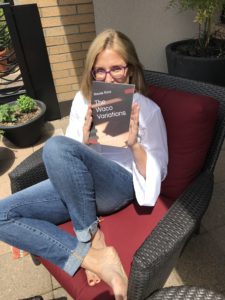The Enterprising Pianist: The Magic of Spontaneous Creativity
 Pianists are disciplined and focused people, and most of us spend a great deal of time planning for the unexpected. Let’s face it, “stuff” happens. As musicians, we work to bulletproof our performances against all manner of potential saboteurs—cell phones, crying children, bad lighting, bad pianos—and in our careers, we juggle the demands of being both artists and entrepreneurs. We learn quickly that success (and paying the rent!) consists of fairly rigid time management and self-editing, and sometimes we learn that lesson so well that we forget to make room for spontaneous creativity.
Pianists are disciplined and focused people, and most of us spend a great deal of time planning for the unexpected. Let’s face it, “stuff” happens. As musicians, we work to bulletproof our performances against all manner of potential saboteurs—cell phones, crying children, bad lighting, bad pianos—and in our careers, we juggle the demands of being both artists and entrepreneurs. We learn quickly that success (and paying the rent!) consists of fairly rigid time management and self-editing, and sometimes we learn that lesson so well that we forget to make room for spontaneous creativity.
Six years ago I was teaching and adjudicating during the week, playing gigs on the weekends, and writing articles for music magazines wherever and whenever I could fit them in. I had clear goals with a written-out plan to achieve them. And then one day, a fictional character, a 16-year-old classical pianist named Cassie—showed up in my imagination and demanded that I write her story. I told Cassie I didn’t have time. I told her I wasn’t a fiction writer. She didn’t go away. Finally, in the nooks and crannies of my schedule, I surrendered and wrote her story.
My book, The Waco Variations, is the result of my surrender. It’s the story of a girl who watches her world burn to the ground in the Branch Davidian fire in Waco, Texas and how she eventually finds healing through music, especially the music of J.S. Bach. “Cassie” gave me the rough draft, and an excellent editor, Arnold Dolin, shepherded me through the editing. I went through the rounds of agents and publishing houses, and a month ago I held the book in my hands for the first time.
I think I can speak for most pianists when I say that discipline and focus never goes away—in my case, I suspect that this part of my nature will die fifteen minutes after I do—but this foray into fiction writing has taught me a very important lesson: creativity is in charge of me, I’m not in charge of it. And when creativity demands action, I need to act—especially when it’s inconvenient and not part of my master plan—because that’s where artistic growth occurs.
